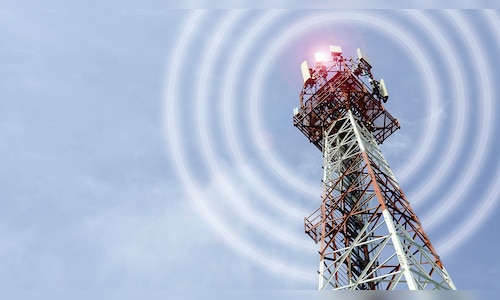The draft Telecom (Procedures and Safeguards for Lawful Interception of Messages) Rules, 2024, released on Wednesday, proposes exempting demonstrations and testing of interception systems by the central government under the new rule.
Under the proposed rules, the DoT has removed provisions relating to fines and suspension of telecom licenses for violation of license conditions relating to maintenance of secrecy, confidentiality of information and unauthorized interception of communications.
However, the new rules propose to oblige telecoms entities involved in the interception process to ensure that “appropriate and effective internal safeguards are implemented to prevent any unauthorised interception of messages” and that “confidentiality and secrecy in relation to the interception of messages are maintained”.
“The telecom entity shall be liable for any action of its employees, including its suppliers, that results in any unauthorized interception or any violation of these rules,” the draft notice said.
The interception notification issued in 2007 under India’s Telegraph Act mandated telecom entities involved in the process to take utmost care and caution as interception of messages affects the “privacy of citizens”.
The draft notification exempts the demonstration and testing of interception systems.
“Nothing in these rules shall apply to the demonstration and testing of lawful interception systems and monitoring facilities that the central government may require telecommunications entities to implement,” the draft said.
The Department of Transportation has maintained the process for issuing intercepts as previously implemented under the proposed rules.
The draft notification provides that the Union Home Secretary or the State Home Secretary will have the power to issue an interception order and in unavoidable circumstances, a Joint Secretary level officer at the Centre may be authorised to issue the order.
In case of remote areas or for operational reasons where the competent authority, whether the Union Home Secretary or the State Home Secretary or the designated Joint Secretary level officer, is unable to issue a warrant, an Inspector General of Police level officer shall be authorized to issue the interception warrant.
However, a copy of the interception order issued by an IG level officer will have to be submitted to the competent authority within three working days and the competent authority will have to approve it within seven working days if it deems it appropriate.
“If the competent authority does not confirm such interception order within seven business days from the date of issuance, such interception shall cease immediately, intercepted messages shall not be used for any purpose, including as evidence in a court of law, and copies of messages intercepted pursuant to such order shall be destroyed within two business days,” the draft said.
The interception order will be valid for 60 calendar days, and may be renewed for an additional period. However, no interception order will be valid for more than 180 calendar days.
“Records relating to an interception order and intercepted messages shall be destroyed by the competent authority and authorised body every six months unless they are, or are likely to be, necessary for functional requirements,” the proposal states.
The DoT and the telecom operator will have to destroy records related to an interception order within two months of the interception being discontinued.
As per the previous practice, the new rule provided for the creation of a review committee under the Cabinet Secretary at the central level and a review committee under the Chief Secretary at the state level.
The review committee shall meet every 2 months to review the interception order and to revoke the interception order and the order to destroy copies of the intercepted message or class of messages that were not intercepted under the rule.
Disclaimer:
The information contained in this post is for general information purposes only. We make no representations or warranties of any kind, express or implied, about the completeness, accuracy, reliability, suitability or availability with respect to the website or the information, products, services, or related graphics contained on the post for any purpose.
We respect the intellectual property rights of content creators. If you are the owner of any material featured on our website and have concerns about its use, please contact us. We are committed to addressing any copyright issues promptly and will remove any material within 2 days of receiving a request from the rightful owner.

